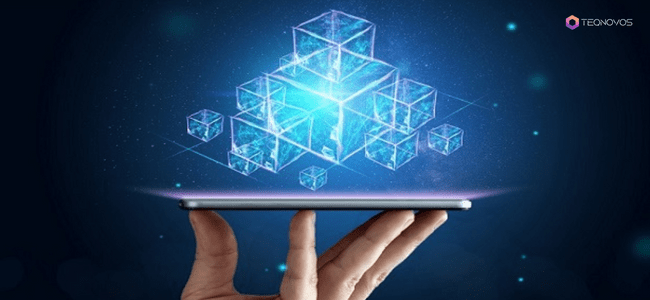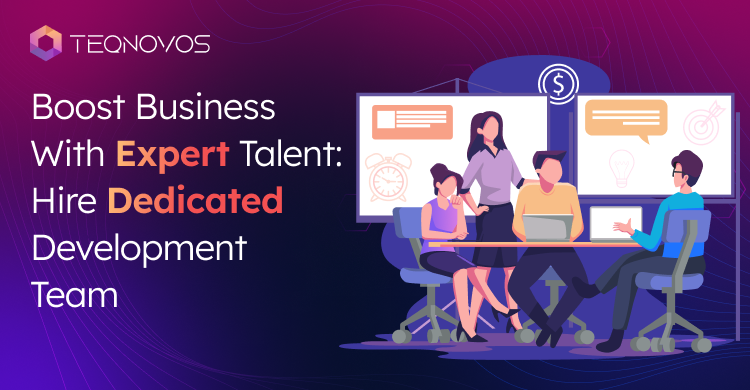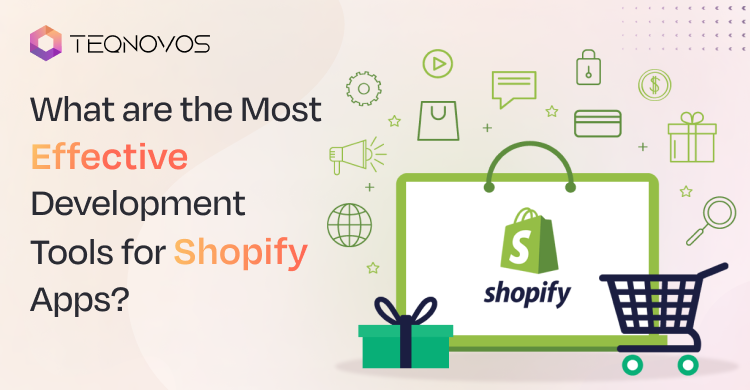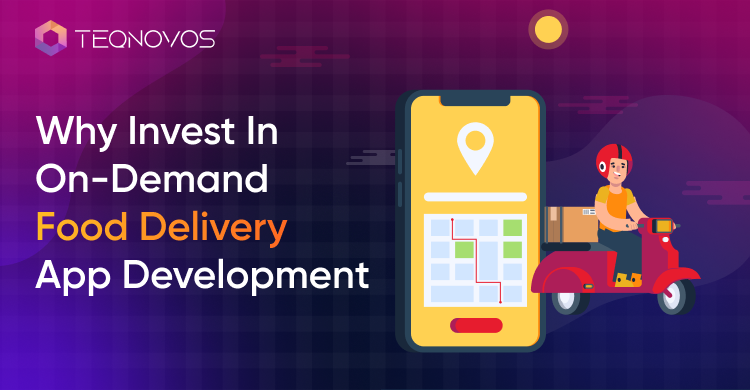Most Popular Applications of Blockchain Technology
The 21st century has witnessed the advent of several innovative technologies, including blockchain. In 2008, a white paper containing the idea of Bitcoin was published. The same whitepaper mentioned a distributed ledger technology that we today know as blockchain.
Since the emergence of blockchain development, several real-world applications of it have been identified. While most people today are familiar with the concept of cryptocurrency, which is an application of blockchain, there are several others that are getting popular.
In this post, we are going to discuss the top use cases and applications of blockchain technology. So, let’s start the discussion with a brief introduction to blockchain.
What is Blockchain Technology?
Blockchain refers to a decentralized digital ledger that stores transactional data. Blockchain works on a peer-to-peer network, where the network participants are responsible for recording transactions as well as maintaining the integrity of the network.
The participants of the network are known as nodes, and each node has a copy of the digital ledger. Whenever a new transaction happens in the blockchain network, the nodes verify it and update the records accordingly in their ledger copies.
As every node in the network has a copy of the ledger, it is almost impossible to modify or manipulate the data without proper authorization. If a malicious actor manipulates the data in the ledger copy of one node, the same will be detected when the ledger is matched with the copies stored by other nodes. Thus, the unauthorized data modification will get rejected straightaway.
Also, blockchain makes use of cryptography to encrypt data or transaction records to ensure complete data protection. SHA-256 is a cryptographic hash function used widely by blockchain platforms.
Apart from Bitcoin, which is the first-ever blockchain platform, there are plenty of other blockchain platforms that are quite popular, including Ethereum, Cardano, Solana, Tron, Corda, Stellar, and Polkadot.
Top Applications of Blockchain Technology
Following are some of the most popular real-world applications of blockchain technology:
1. Cross-Border Payments
Blockchain makes it really easy to make payments, and that too without the need for intermediaries such as banks. With cryptocurrencies like Bitcoin, Ethereum, Ripple, and Tron, making payments or transferring money is highly convenient.
In fact, the intention behind the development of Bitcoin, which is the first cryptocurrency, was to create a peer-to-peer network for payments. Over the years, several new cryptocurrencies and blockchain platforms have been developed that allow us to make global payments quickly and at a cheaper price than conventional methods.
The financial systems available today are not only slow but charge hefty fees for global payments. In general, regular cross-border payment methods complete a transaction in 3-5 business days. However, cryptocurrencies make it possible to complete a cross-border transaction in minutes.
2. Lending
When it comes to lending, blockchain technology has the potential to change the whole landscape. With the help of blockchain, it is possible to create a P2P network where borrowers and lenders can engage directly with no need for third parties to protect their interests.
A blockchain-powered lending platform makes use of smart contracts to bind the two parties. Lenders can simply deposit fiat currency, such as US Dollar, with a DeFi lending platform. Borrowers, on the other hand, deposit crypto assets as collateral and receive loans.
Even banks can make use of blockchain technology to make their lending process more efficient. They can use blockchain to verify the credentials of a borrower and create smart contracts for issuing loans. For instance, a smart contract may highlight all the documents that a borrower needs to submit to receive the loan amount. Once all those documents are submitted, the smart contract will automatically sanction the loan amount.
3. E-voting
As the data stored on a blockchain is tamper-proof, we use it for e-voting. The idea is to store the identity information of voters on the blockchain. Whenever the voting process begins, it will become quite easy to verify the identities of voters.
Additionally, blockchain will help to ensure that each voter casts only one vote. Storing all the voting data on a blockchain makes it impossible for malicious actors to tamper with it. This will eventually help ensure a voting system’s integrity and correctness.
By organizing e-voting with the help of blockchain, it is possible to save costs associated with polling places. There is no need to set up polling places and arrange voting equipment as voters can cast their votes directly from their smartphones.
Also, apart from using blockchain-powered e-voting systems for government elections, it is viable to use them for conducting corporate elections.
4. Digital Identity
Identity storage and management is yet another application of blockchain technology. We can create a dedicated infrastructure using blockchain that lets us store and access our digital identities securely.
The current identity management systems are not efficient enough when it comes to making data easily accessible, securing data against external threats, and preventing the creation of fraudulent identities.
Blockchain makes it possible to create highly secure and efficient identity management systems. Also, such systems will make it convenient for individuals to access and produce their digital identities in any part of the world as blockchain networks are globally accessible.
5. Decentralized Finance (DeFi)
One of the most prominent blockchain applications in finance is DeFi or decentralized finance. In general, DeFi refers to a technology based on blockchain that aims to replace traditional methods of finance.
The main objective of DeFi is to replace centralized financial systems with decentralized systems that use peer-to-peer networks. DeFi eliminates the need for financial institutions to facilitate transactions between two parties. Also, financial services become accessible to everyone and no single entity can have complete control over one or more services.
At present, there are several DeFi apps that offer a wide range of financial services based on distributed ledger technology. You can easily get access to DeFi apps that allows P2P transactions in the form of cryptocurrencies as well as DeFi lending platforms where lenders and borrowers get together to process loans.
6. Insurance
Blockchain has a huge scope in the insurance industry as it helps to streamline many processes and improve the quality of insurance products and services. Also, the added transparency between the insurance providers and customers is what makes the blockchain a great choice for insurance companies.
By leveraging smart contracts and dApps, insurance companies can automate many processes, ranging from the purchase of an insurance product to insurance claim settlement. To be more precise, customers can view and purchase an insurance product or service through a decentralized application (dApp). On the other hand, smart contracts define the terms and conditions of an insurance policy in digital form.
As blockchain allows the tracing of duplicate data, it helps to prevent duplicate claims. Moreover, the data in a blockchain is immutable and no one can alter it, which limits the possibility of fraud.
7. Supply Chain Management
The use of blockchain in supply chain management can yield positive results for both end users and supply chain companies. Currently, tracking the whole journey of a product, right from the procurement of raw materials to the final delivery of the product is quite challenging. The involvement of multiple companies in the supply chain makes it difficult to track a product at each stage.
Usually, supply chain and logistics companies use distinct systems to keep track of the products. In most cases, these systems are not interoperable and there’s no way one can exchange data with the other. Also, the data stored in such systems are prone to manipulation, thus it’s hard to rely on them.
Blockchain can provide uniform, tamper-proof storage for supply chain companies to keep an immutable record of the product at every stage of the supply chain. End-users and suppliers can get a lot of information about the product, such as the source of raw materials, manufacturing process, inventory, and much more.
A supply chain management system created using Blockchain can help create a network for connecting producers, logistics companies, distributors, and retailers. They can provide updates related to products and thus make it easy to track the supply chains.
8. Record Keeping
This is probably the most common yet practical application of blockchain. While blockchain is a distributed ledger for storing transactional records, it can hold other information as well. This can benefit several industries that need robust, easy-to-access, and decentralized storage for record keeping.
For instance, one major application of blockchain in healthcare is the management of patient records. Blockchain-based PHRs (Personal Health Records) allows hospitals and other healthcare organizations to create interoperable systems. Storing patient data on a blockchain makes it easy for hospitals to get access to patients’ medical histories and deliver the best health care.
Additionally, organizations across a wide range of industries, such as education, manufacturing, and banking can use blockchain for record keeping. They also have the flexibility to use a private blockchain to store confidential data.
9. Asset Management
It is a viable option to use blockchain for asset management as it eliminates the need for intermediaries, brings down operational costs, and simplifies asset management.
For any individual, managing different types of assets, such as equity, mutual funds, real estate, cryptocurrencies, and NFTs simultaneously is a highly demanding task. You may need to create multiple accounts on various online platforms to manage your assets.
The use of blockchain can help simplify various processes for users. They can upload all their data required for KYC and other formalities needed to trade assets. It is easy to share these details with asset management companies and sign up for their services.
One more benefit of integrating blockchain in asset management is that investors can put their money into assets available across different countries.
10. Non-fungible Tokens (NFTs)
NFT is yet another popular application of blockchain that allows you to get ownership of real-world objects. Also, the objects can be physical or digital. The term non-fungible in NFT indicates that each NFT is unique, and you can’t simply replace one for another as each NFT has a different value.
With NFTs, investors get a safe and reliable way to get ownership of a wide range of digital and physical assets. Digital assets include artwork, in-game items, music, video, etc. Also, it is possible to own physical assets, such as real estate, precious metals, and luxury items.
The process for owning an asset with NFT is simpler compared to traditional ones that involve a lot of paperwork and high processing costs. Moreover, as the ownership details of an NFT are stored over a blockchain, they simply can’t be tampered with.
Get the Best Blockchain Solutions With Teqnovos
The progress in the blockchain space clearly hints that the technology has a wide array of applications across different industries. Any organization looking to take advantage of blockchain technology should consult a highly reputed blockchain development company.
Teqnovos is one such company that has been thriving in the blockchain development space for several years. The company offers consulting services to help organizations working across different industries identify how they can improve their performance and ROI with blockchain.
Some of the most notable blockchain development services offered by Teqnovos include the following ones:
- Smart Contract Development
- dApps Development
- Blockchain Supply Chain Solutions
- Private Blockchain Development
- NFT Marketplace Development
The developers at Teqnovos are well-versed in several blockchain platforms and development technologies, including Ethereum, Corda, Solana, Tron, Tezos, Multichain, Hyperledger, Solidity, C++, Java, and Node.js.
You can contact Teqnovos to get a free consultation for your blockchain project.
Conclusion
The popularity of blockchain is growing across different industries with each passing day. As a result, organizations are putting in a lot of effort to discover how they can leverage this technology to enhance their products, services, and/or business operations.
As we have discussed above, there many applications of blockchain that have the potential to revolutionize the way businesses operate in different industries. From general applications, like record-keeping, to more industry-specific applications, such as DeFi, blockchain has several real-world use cases.
Any business looking to incorporate blockchain needs to consult a blockchain development company and learn how it can make the most out of blockchain solutions.
















